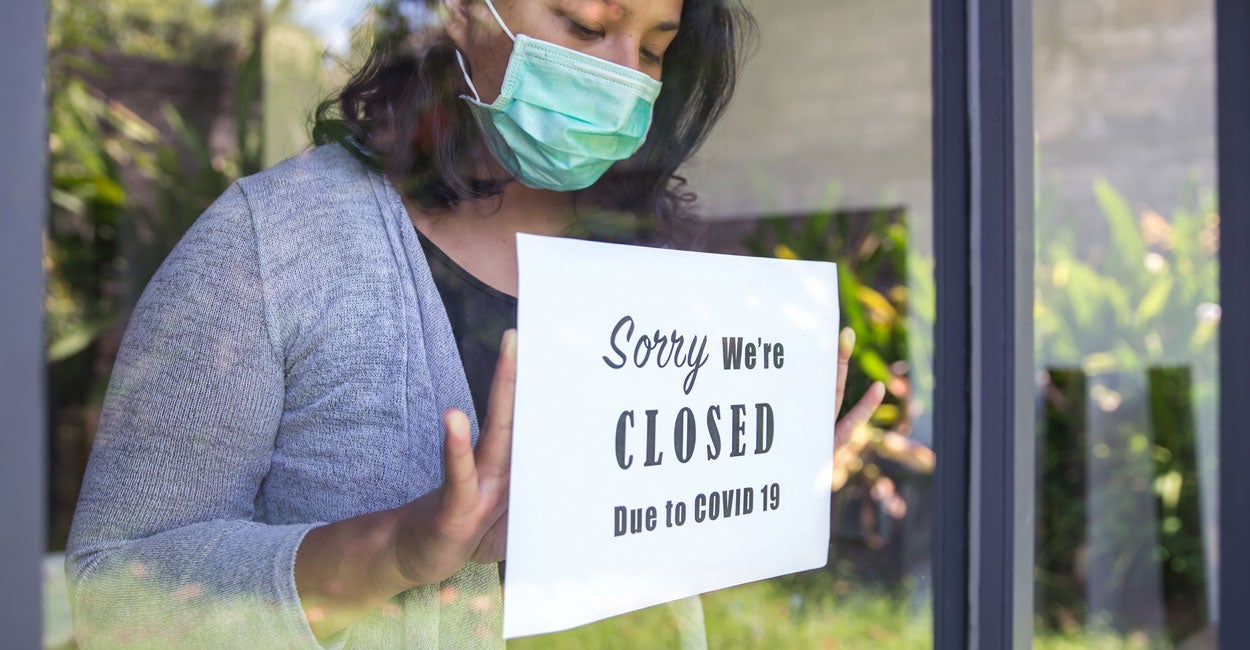Should the economy reopen after the pandemic, the average retail establishment can expect to have only eight weeks worth of resources to rely on. (Photos: Kanawa Studio/Getty Images)
As policymakers continue to respond to the coronavirus pandemic, it is more important than ever to weigh the consequences of their public health decisions on jobs and livelihoods. The adage that “the treatment is worse than the disease” comes to mind when considering the lockdown’s effect on the economy.
Take, for example, the findings of a recent working paper by the World Bank, titled “Survival of Firms during Economic Crisis.” It estimates that “in a hypothetical scenario fashioned after the current pandemic period—where firms have no revenues due to a lockdown or collapsed demand,” an average retail firm may have retained only as many earnings and other sources of financing to last as little as eight weeks.
Manufacturing firms are typically better positioned, with resources sufficient to last between 19 and 38 weeks. Analyzing about 7,000 firms in selected countries across the globe, the World Bank’s research points out:"In the current pandemic, governments rightly focus on dealing with the health aspects first, and only then on the recovery of the economy once the immediate danger of the pandemic is over. In the meantime, businesses are rapidly running out of cash."
"In the United States, half of small firms—those with fewer than 500 employees—have cash reserves for less than a month, and another quarter of businesses may run out of cash in two months. For service industries, the period to illiquidity is even shorter."
Given the severe economic and financial problems associated with lockdowns, it is vital that governments approach public policy decisions with a clear understanding of what’s at stake. It would be helpful for them to remember that keeping the economy as resilient as possible—both at the macro and micro level—and protecting public health are not mutually exclusive.
This is made clear in a new Heritage Foundation special report that looks into the coronavirus responses of 11 countries, with varying levels of economic freedom, to better understand which policy choices might have been more practically effective than others.The available evidence suggests that complete lockdowns, such as those implemented in Italy and Norway, are no more effective from a health point of view than the more targeted approaches taken in other countries, such as in Iceland and South Korea, but cause far more economic disruption.
That means, as Heritage research has underscored, governments can achieve superior results by avoiding blanket lockdowns while focusing on hot spots, protecting the elderly and most vulnerable, utilizing isolation centers to prevent the virus from spreading, taking advantage of contact tracing, and engaging in appropriate testing.
Given the dire firm survival statistics reported in the World Bank study, it is more important than ever for governments to engage in such “smart reopening.” Government-mandated lockdowns and political stimulus were thought to be the quick and easy solutions. However, we now know that they are not the best, either in controlling the spread of the disease or maintaining people’s livelihoods.
[italics and colored emphasis mine]
Anthony B. Kim researches international economic issues at The Heritage Foundation, with a strong focus on economic freedom. Kim is the research manager of the Index of Economic Freedom, the flagship product of the Heritage Foundation in partnership with The Wall Street Journal. Read his research.
------------------------------------------------------------------------------------------------------
"Four Months of Unprecedented Government Malfeasance" - Heather Mac Donald
Manhattan Institute - https://imprimis.hillsdale.edu/wp-content/uploads/2020/07/Imprimis_MayJune_8pgWEB.pdf
the disorder of the world. - Karl Barth
*Representative name or photo used to protect identity.





No comments:
Post a Comment